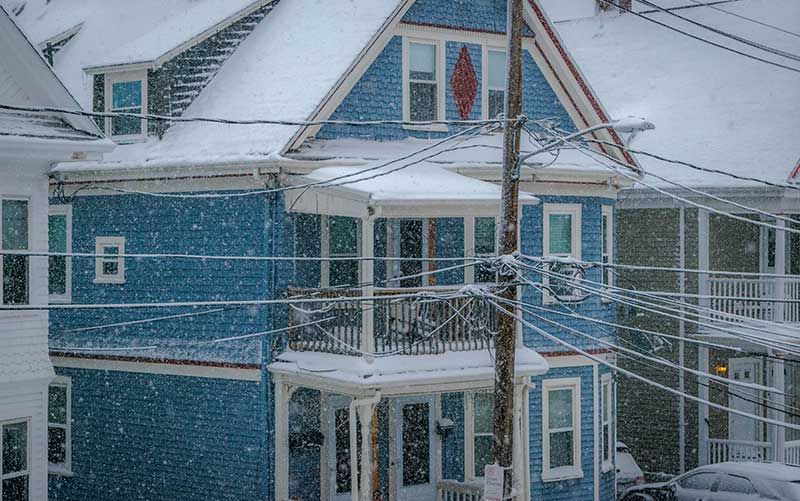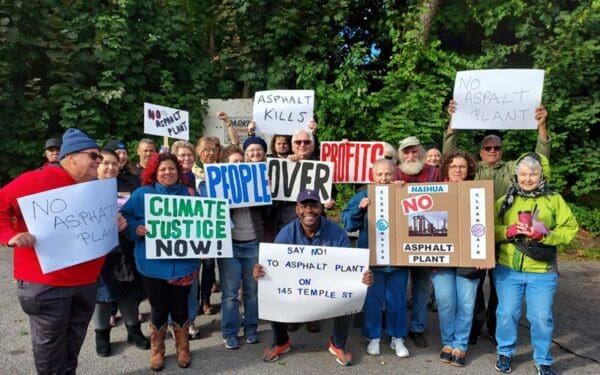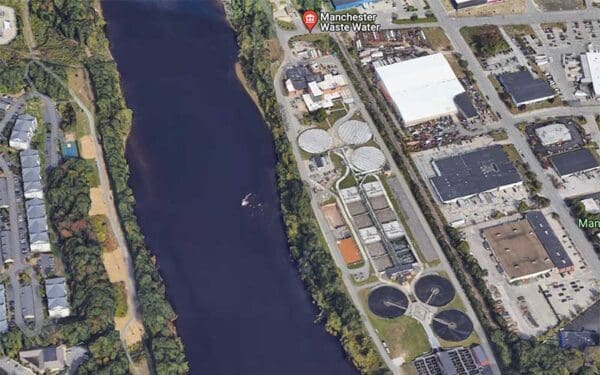
Climate change is causing winter storms to grow more powerful. Yet our utility companies have failed to plan for these climate impacts, letting residents pay the costs in higher bills and risks to health and safety. Photo: Shutterstock
On January 29, 2022, over 115,000 Massachusetts residents were left without power as blizzard-strength winds raged outside and the sky dumped several feet of snow. Twenty-four hours later, nearly 3,000 people still shivered in the dark.
This storm was not the first devastating nor’easter New Englanders have suffered, and it won’t be the last. Every year, big storms force people to contend with frigid conditions without heat or electricity – often for days or sometimes weeks. Climate change will only make these storms and their fallout more severe.
Fixing these emergency outages can cost electricity companies millions of dollars – costs they pass on to their customers. But it doesn’t have to be this way. It is time for utility companies to update and reinforce their infrastructure to make it more capable of withstanding these storms.
Utilities will not implement these changes on their own, however. Here in Massachusetts, the state Legislature or the Department of Public Utilities must act now to protect our health and safety.
We’re Locked in a Broken Cycle of Destruction and Repair
As the climate becomes more variable, storms and seasonal conditions will grow more extreme and utility outages more frequent. Ultimately, you and I end up paying for these outages – financially and with our discomfort and health. Loss of electricity leads to food and medicine spoilage, water contamination, and an inability to use essential medical devices. Outages also lead people to seek dangerous alternatives for warmth that can cause illness or even death, particularly among children, the elderly, and those with compromised immune systems.
We pay the costs of these outages in the moment with our health and safety. We are also forced to pay for them, often years later, in higher utility bills. This process is called “storm cost recovery.” It happens every year when a utility company applies to a state’s public utility commission to seek financial recovery for storm-related outages.
Right now in Massachusetts, National Grid and its subsidiaries are seeking financial recovery from the Department of Public Utilities for restoring their customers’ power in 2020. The cost to their customers? Over $76 million. That’s for one year for one utility to recover from the damage associated with 14 storms. This comes as New Englanders face our steepest gas and electricity costs in over 25 years, with rates expected to increase substantially this winter over last year.
This cycle of storm repairs and cost recovery has been the norm for years, even though Massachusetts updated its public utility emergency preparedness law a decade ago. But it’s a broken cycle. The fact is New England’s utility companies know their infrastructure is vulnerable. Yet, they have not taken any measures to reduce the cost or frequency of these power outages – and they are not held accountable to do so.
Worse, utility companies have no incentive to make investments to prepare for and minimize damage from these storms because they can force customers to pick up the tab after the fact.
Rather than investing in the resilience of our utility infrastructure, we are locked in a cycle of destruction and repair. The people of Massachusetts are paying for utility companies’ negligence.
Our Regulators and Utility Companies Are Falling Down on Climate
The Massachusetts Department of Public Utilities is responsible for regulating utilities to ensure safe, reliable service. Massachusetts law requires that utility operations be cost-effective, reasonable, and future-oriented to recover operational costs. However, National Grid has failed to live up to its responsibilities. The 2020 storms that cost National Grid (and, by extension, you and me) $76 million were completely foreseeable, meaning the company should have been prepared for them.
That’s why CLF is urging the Department of Public Utilities to reject the company’s request for cost recovery. We also want the Department to set an eligibility requirement for future recovery costs: that National Grid and its subsidiaries conduct a vulnerability assessment and implement adaptation measures that account for the known impacts of climate change over the coming decades.
CLF has repeatedly pushed the Massachusetts Department of Public Utilities to require the state’s electric, gas, and water utilities to assess their vulnerability to climate change and create a plan to adapt. We are renewing our call for utility companies to be held accountable for their financial irresponsibility and the physical and monetary costs it imposes on their customers. This means preventing at-risk infrastructure from being destroyed by an extreme storm – and building future infrastructure with climate change in mind. Families and businesses in Massachusetts should not be saddled with the costs of repairing and rebuilding infrastructure because utilities failed to plan and prepare.
We Must Demand Climate-Safe Utilities
If the Department of Public Utilities doesn’t see the wisdom of requiring utilities to plan for climate impacts – or doesn’t believe it has the authority to do so – we must make that authority explicit and mandatory. CLF plans to introduce a bill in the 2023 state legislative session to require that electric utilities conduct vulnerability assessments and create measurable plans to address those vulnerabilities.
Sea level rise, stronger and more frequent winter storms and hurricanes, and longer and hotter heatwaves all threaten our electric, gas, and water utilities. Yet, these companies have not adequately analyzed these threats, much less prepared for them. Without these measures, we will continue to pay for their negligence with our wallets, comfort, and lives. It is time for utility companies to wake up and adapt to the realities of our changing climate.




